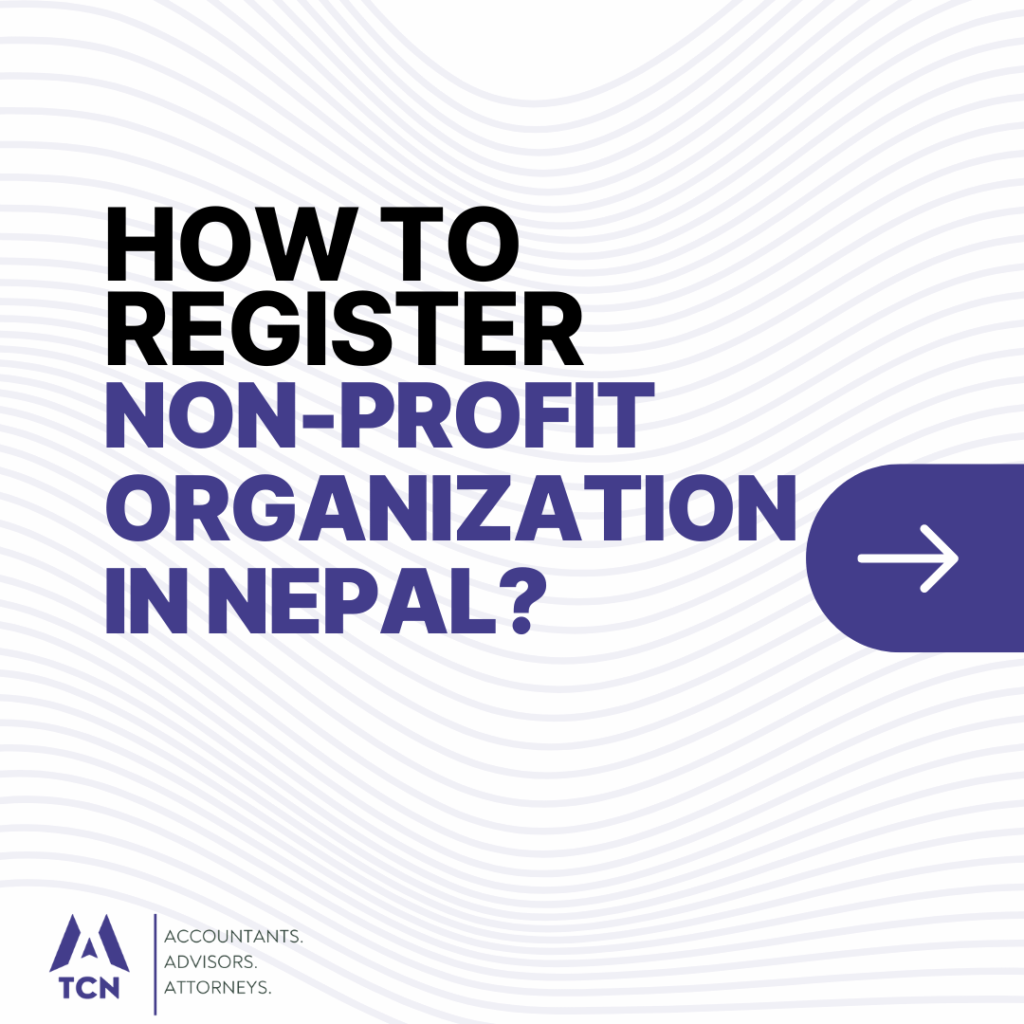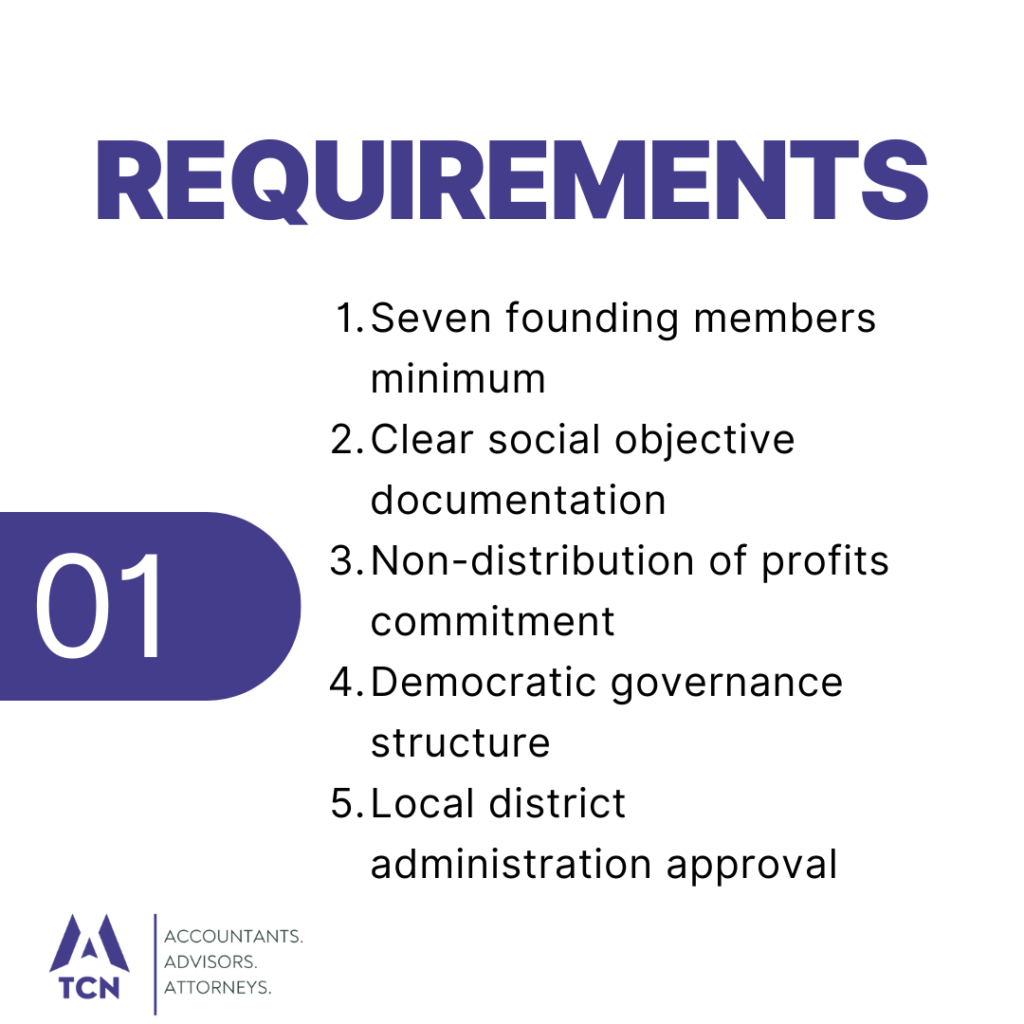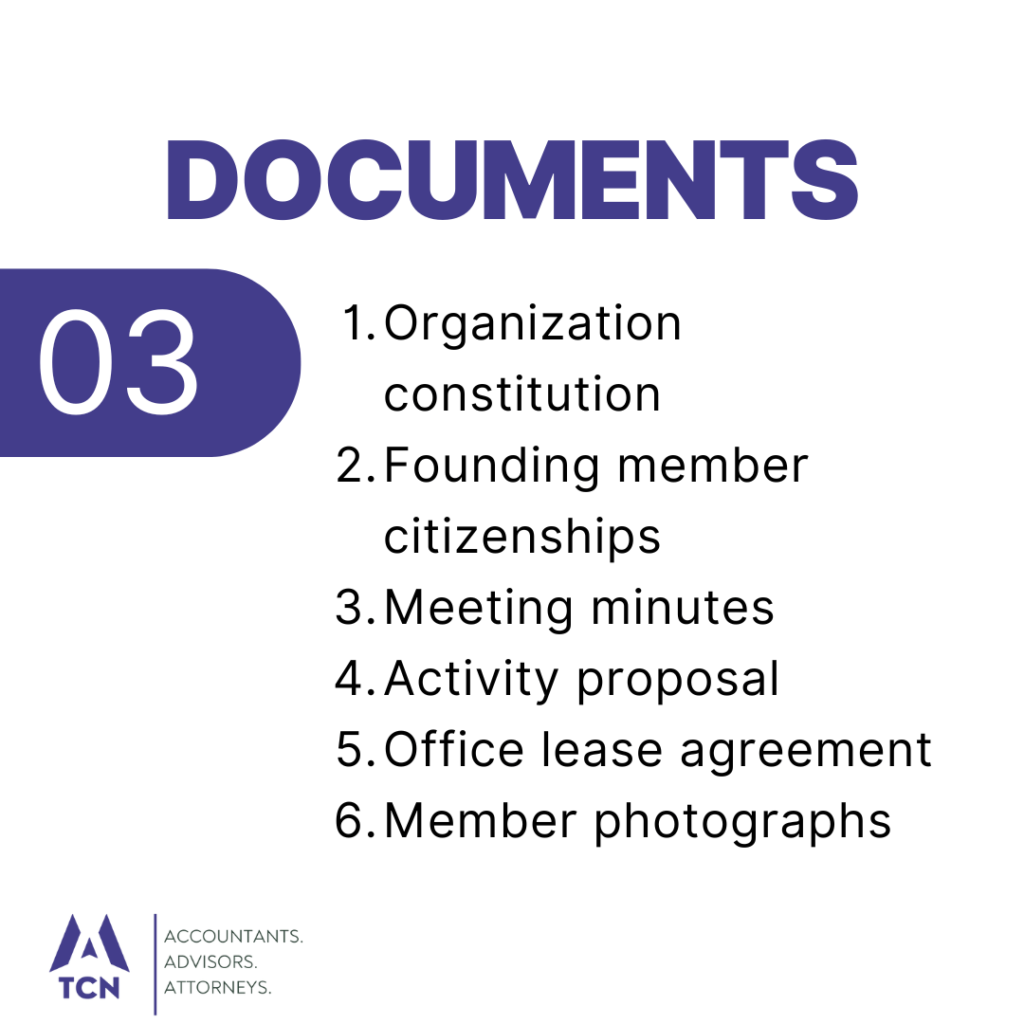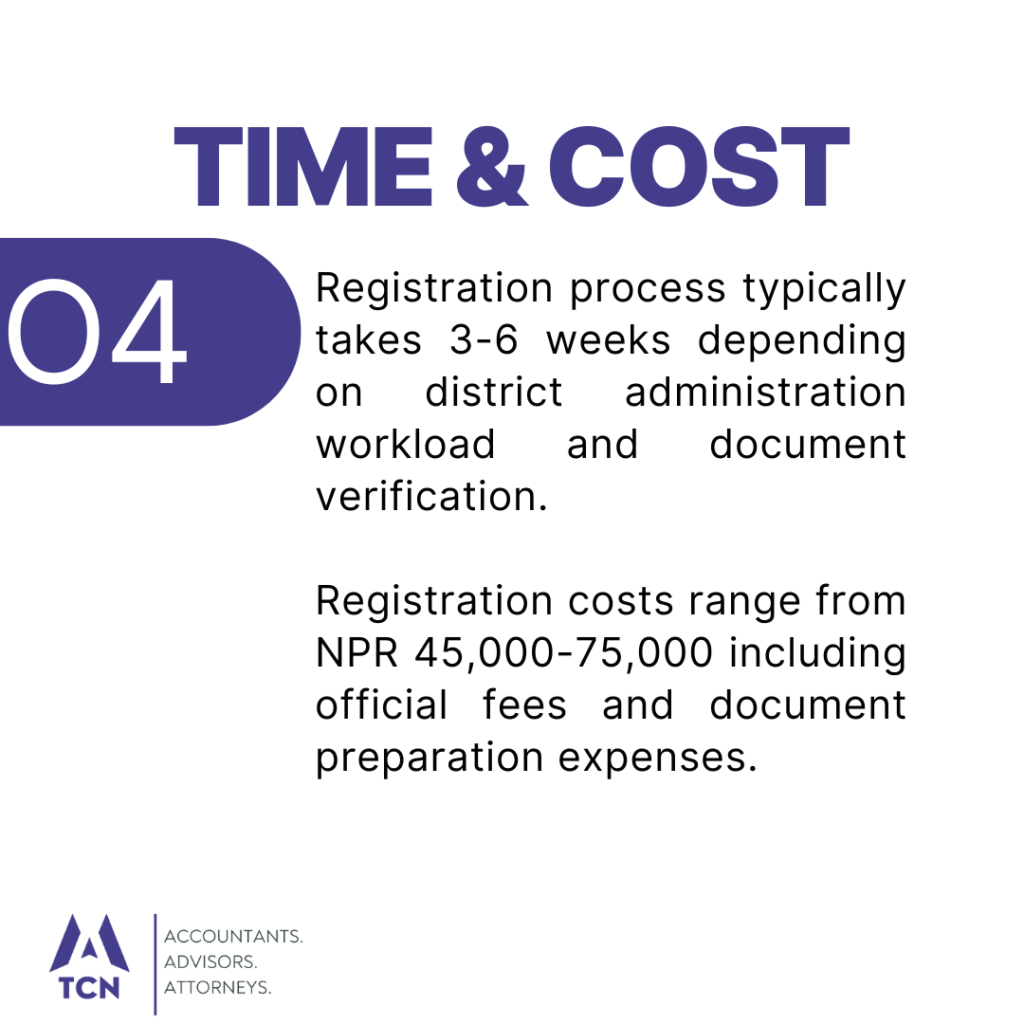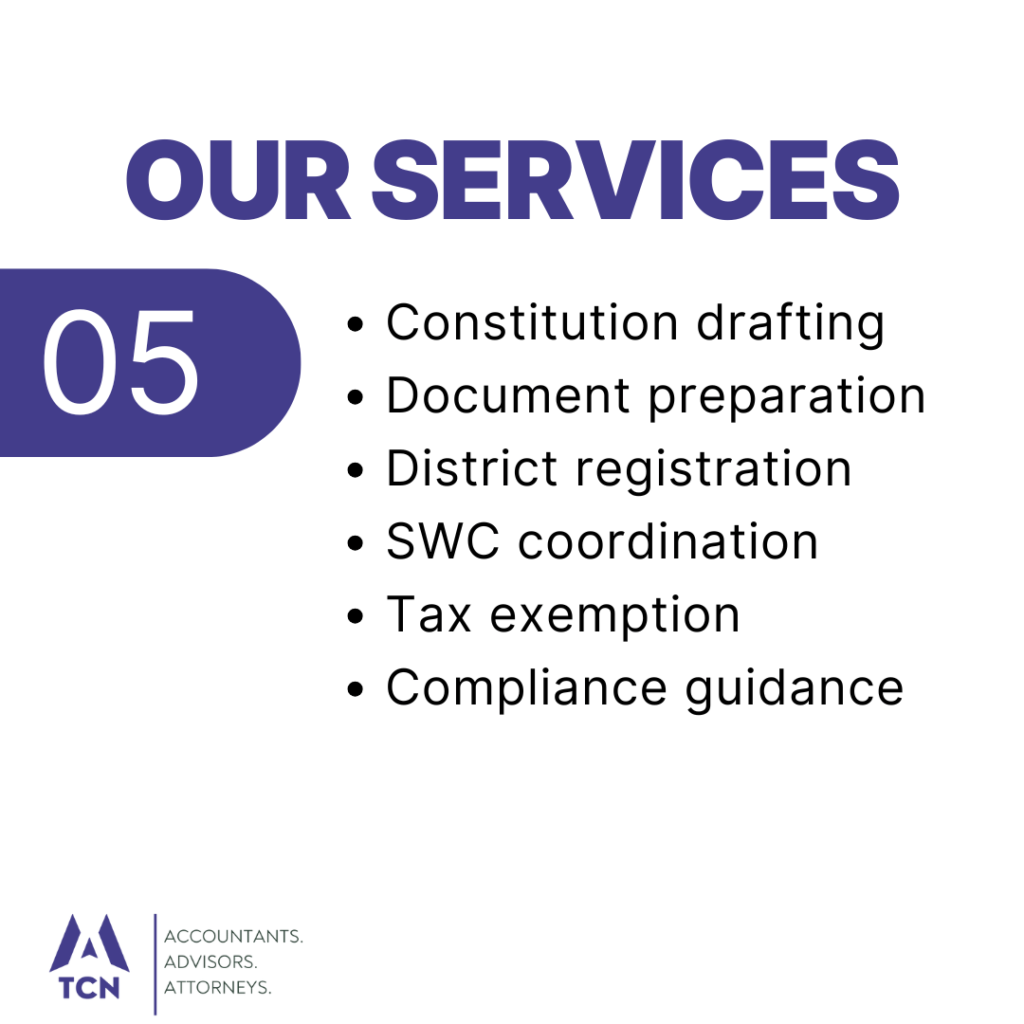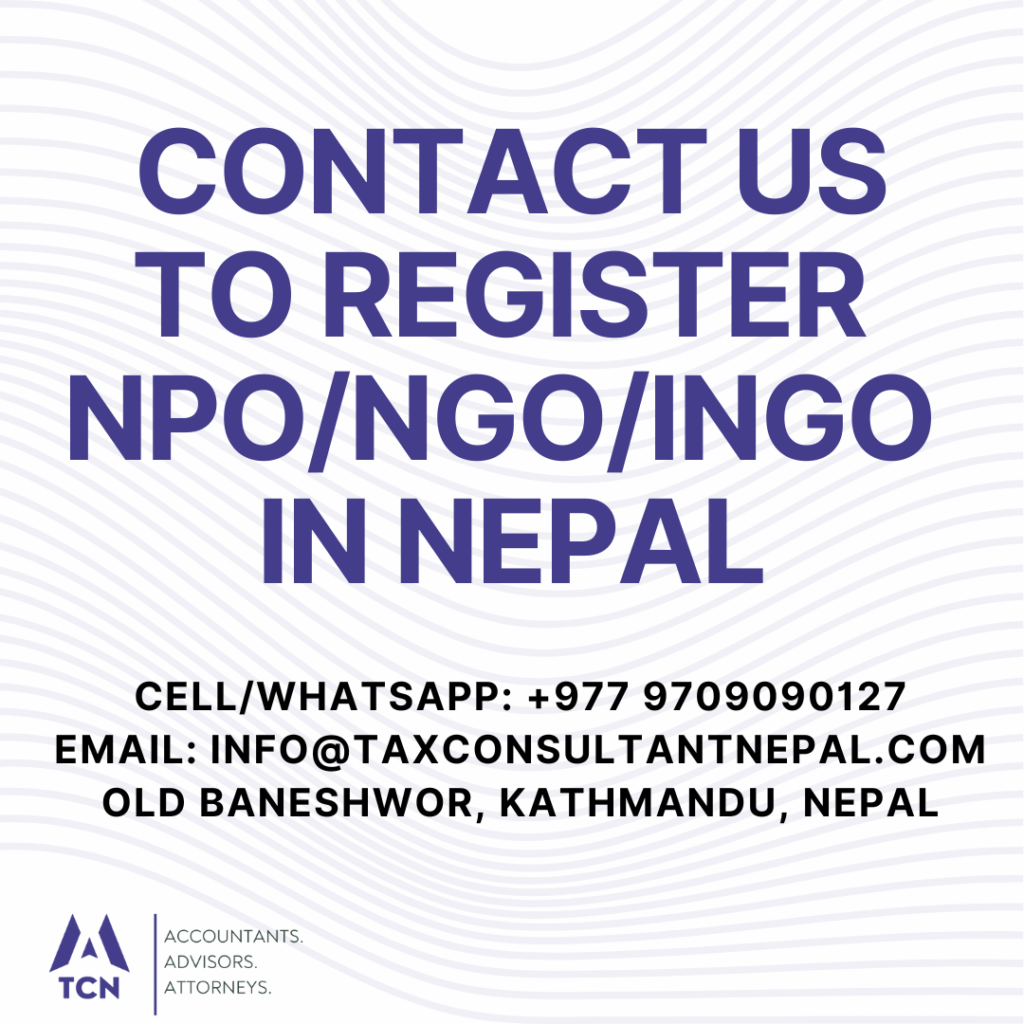Are you passionate about making a positive impact in your community? Non-profit organization Registration in Nepal can be an excellent way to turn your vision into reality. This comprehensive guide will walk you through the process of establishing an NGO, covering everything from understanding what an NGO is to navigating post-registration requirements.
What is a Non-Profit Organization?
A non-profit organization, also known as a non-governmental organization (NGO) in Nepal, is a legal entity that operates independently of any government and typically has a social or environmental mission. These organizations are dedicated to addressing specific issues, providing services, or advocating for particular causes without the primary goal of making a profit.
Key characteristics of NGOs include:
- Social or environmental focus
- Non-profit status
- Voluntary governance
- Independence from government control
- Reinvestment of surplus funds into the organization’s mission
- Accountability to donors, beneficiaries, and the public
NGOs play a crucial role in Nepal’s development landscape, often filling gaps in service provision and advocating for marginalized communities.
What documents are needed for NGO registration?
To register an NGO in Nepal, you’ll need to prepare and submit several essential documents. These typically include:
- Application form
- Proposed constitution or bylaws of the organization
- Minutes of the founding meeting
- List of founding members with their details
- Citizenship certificates of founding members
- Recommendation letter from the local government
- Police clearance certificates for key members
Ensure all documents are complete, accurate, and properly notarized where required to avoid delays in the registration process.
Where to register a non-profit in Nepal?
In Nepal, the primary authority responsible for NGO registration is the District Administration Office (DAO) of the district where the organization will be based. However, the specific registration process may vary depending on the type and scope of the NGO:
- Local NGOs: Register with the District Administration Office
- National NGOs: Register with the Social Welfare Council (SWC) after initial DAO registration
- International NGOs: Register with the Social Welfare Council
It’s crucial to identify the correct registering authority based on your organization’s intended scope and activities to ensure proper compliance with Nepali laws and regulations.
What is the Process of registering an NGO in Nepal?
Registering an NGO in Nepal involves several steps and interactions with different government bodies. Here’s a detailed overview of the process:
- Form a founding committee: Gather a group of like-minded individuals to serve as founding members. Typically, you’ll need at least 7-9 members.
- Develop constitution and bylaws: Draft a comprehensive document outlining your organization’s objectives, structure, and operational procedures.
- Hold a founding meeting: Conduct an official meeting to adopt the constitution and elect initial office bearers. Keep detailed minutes of this meeting.
- Prepare required documents: Collect all necessary documents, including application forms, member details, and supporting letters.
- Submit application to DAO: File your registration application with the District Administration Office in your area.
- Follow up and address queries: Respond promptly to any questions or requests for additional information from the DAO.
- Receive registration certificate: Once approved, collect your official NGO registration certificate from the DAO.
Remember, this process may take several weeks or even months, depending on the completeness of your application and the workload of the relevant offices. Patience and persistence are key throughout the registration journey.
Relevant Articles:
- Tax Liability Dispute Process in Nepal
- Process of Filing for Excise Duty in Nepal
- Import Tax Procedure in Nepal
How long does NGO registration take?
The duration of the NGO registration process in Nepal can vary significantly based on several factors. On average, it takes about 2-3 months from the initial application submission to receiving the final registration certificate. However, this timeline can be shorter or longer depending on:
- Completeness and accuracy of submitted documents
- Workload of the District Administration Office
- Complexity of the proposed NGO’s structure and activities
- Any additional inquiries or clarifications required by authorities
- Efficiency in following up and responding to official queries
To expedite the process, ensure all documents are meticulously prepared and promptly respond to any requests from the registering authorities. Building a good relationship with the officials handling your application can also help smooth the process.
What is the cost of NGO registration?
Registering an NGO in Nepal involves various costs, both direct and indirect. While the official fees are relatively modest, there are additional expenses to consider:
- Official registration fee: Approximately NPR 1,000 – 5,000
- Legal and consultancy fees: NPR 15,000 – 50,000 (if professional help is sought)
- Document preparation and notarization: NPR 5,000 – 10,000
- Travel and logistics: Varies based on location and number of trips required
It’s important to budget for these expenses and potential unforeseen costs. Additionally, consider the time investment required from founding members, which, while not a direct financial cost, represents a significant commitment.
Can foreigners register NGOs in Nepal?
Yes, foreigners can be involved in registering NGOs in Nepal, but there are specific regulations and limitations to be aware of:
- International NGOs (INGOs) can be registered by foreigners through the Social Welfare Council
- Local NGOs must have Nepali citizens as founding members
- Foreigners can serve on boards or as advisors to local NGOs, but cannot be office bearers
- All foreign involvement must comply with Nepal’s Foreign Investment and Technology Transfer Act
Foreigners interested in establishing an NGO in Nepal should consider partnering with local individuals or existing organizations to navigate the legal landscape effectively. It’s also advisable to seek legal counsel to ensure full compliance with Nepali laws regarding foreign participation in the non-profit sector.
What types of NGOs can be registered?
Nepal recognizes various types of non-profit organizations, each with its own focus and regulatory requirements. The main types include:
- Social welfare organizations
- Professional associations
- Community-based organizations
- Environmental conservation groups
- Human rights advocacy groups
- Educational institutions
- Health and medical service providers
When registering, you’ll need to clearly define your organization’s primary focus and activities. This classification will determine which specific regulations apply to your NGO and may influence the registration process and ongoing compliance requirements.
READ MORE: NGO Registration Process in Nepal
Is board approval needed for registration?
Board approval is not explicitly required for the initial registration of an NGO in Nepal. However, having a strong, committed founding board can significantly benefit the registration process:
- Provides credibility to the application
- Demonstrates organizational capacity
- Helps in drafting a comprehensive constitution
- Supports in gathering necessary documents
- Can assist in navigating bureaucratic processes
While not mandatory, it’s highly recommended to form a provisional board or steering committee before initiating the registration process. This group can guide the organization through its formative stages and help establish a solid foundation for future operations.
How to choose an NGO name?
Selecting an appropriate name for your NGO is crucial for its identity and legal registration. Consider these factors when choosing a name:
- Relevance: Reflect your organization’s mission and activities
- Uniqueness: Ensure it’s not already in use by another registered entity
- Simplicity: Make it easy to pronounce, spell, and remember
- Acronym potential: Consider how it might be abbreviated
- Cultural sensitivity: Avoid names that could be offensive or misinterpreted
- Future-proofing: Choose a name that allows for potential growth or expansion
- Language: Decide whether to use Nepali, English, or both
Remember to check the availability of your chosen name with the District Administration Office before finalizing your decision. A well-chosen name can contribute significantly to your NGO’s recognition and effectiveness in the long run.
What are the post-registration compliance requirements?
After successfully registering your NGO, there are ongoing compliance requirements to maintain good standing with Nepali authorities:
- Annual reporting: Submit activity and financial reports to the DAO and SWC
- Tax compliance: File annual tax returns, even if exempt from taxation
- Board meetings: Hold regular board meetings and maintain minutes
- Membership updates: Keep member registries current and report significant changes
- Project approvals: Obtain necessary approvals for new projects or programs
- Audits: Conduct annual financial audits by certified auditors
- Renewal: Renew your NGO registration annually or as required by local regulations
Staying compliant with these requirements is essential for your NGO’s continued operation and ability to receive funding or government support. Consider designating a compliance officer within your organization to manage these ongoing responsibilities effectively.
Can NGOs engage in commercial activities?
While NGOs in Nepal are primarily non-profit entities, they can engage in certain commercial activities under specific conditions:
- Income generation must support the NGO’s primary mission
- Profits should be reinvested in the organization, not distributed to members
- Commercial activities should not overshadow the NGO’s main objectives
- Separate accounting must be maintained for commercial and non-profit activities
- Additional permits or licenses may be required for certain commercial ventures
Examples of acceptable commercial activities might include selling handicrafts made by beneficiaries, operating a social enterprise cafe, or offering training services related to the NGO’s expertise. Always consult with legal and financial advisors to ensure any commercial activities comply with Nepali law and maintain your organization’s non-profit status.
How to register a non-profit organization in Nepal?
1. Choose an appropriate name for your NGO.
2. Draft the organization’s constitution or bylaws.
3. Register with the District Administration Office (DAO).
4. Obtain approval from the Social Welfare Council (SWC).
5. Register with the Internal Revenue Department for tax exemptions.
6. Apply for a PAN (Tax Identification Number) from the Department of Inland Revenue.
How much does it cost to register an NGO in Nepal?
The cost of registering an NGO in Nepal can vary depending on its type and size. Typically, the registration costs range between NPR 10,000 to NPR 50,000. Additional costs may include legal fees, documentation charges, and registration with the Social Welfare Council (SWC).
What are the steps to a non-profit organization?
1. Define your mission and objectives.
2. Prepare your organization’s constitution.
3. Register the NGO with the DAO and SWC.
4. Obtain necessary approvals and licenses.
5.Open a bank account in the NGO’s name.
6. Comply with annual reporting and regulatory requirements.
What is the registration act of NGO in Nepal?
NGOs in Nepal are registered under the Social Welfare Act, 1992. This act regulates the registration and operation of non-governmental organizations that aim to contribute to social welfare, development, and non-profit causes within the country.
Which legal document is required to establish an NGO?
To establish an NGO in Nepal, the primary legal document required is the constitution or bylaws, which outline the organization’s objectives and operational guidelines. Other supporting documents may include a list of founding members, their identification copies, and proof of the organization’s address.
How do I register a local NGO?
To register a local NGO, you need to submit the organization’s constitution, a registration application, and supporting documents to the District Administration Office (DAO). After this, you must obtain approval from the Social Welfare Council (SWC) for operational permissions. You may also need to fulfill local government registration requirements.


